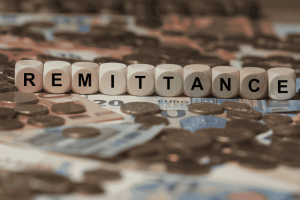Unexpected events—job loss, medical emergencies, natural disasters, or sudden family obligations—can disrupt your financial stability. Without proper planning, these surprises can lead to debt, stress, and financial insecurity.
The good news is that with the right financial strategies, you can prepare for life’s uncertainties. In this guide, we’ll explore how to build a strong financial safety net, protect your assets, and ensure you’re financially prepared for whatever life throws your way.
1. Build an Emergency Fund

An emergency fund is your first line of defense against financial setbacks. It provides a cushion that allows you to handle unexpected expenses without going into debt.
How Much Should You Save?
- 3-6 months of living expenses if you have a stable income.
- 6-12 months of expenses if you’re self-employed or in an unpredictable job market.
Where to Keep Your Emergency Fund:
- High-yield savings account – Keeps your money accessible while earning interest.
- Money market account – Offers slightly higher returns than regular savings.
- Separate account – Helps avoid the temptation to spend the funds.
Solution: Start small if necessary—saving even a little each month builds a financial buffer over time.
2. Get the Right Insurance Coverage
Insurance is a crucial tool to protect yourself and your finances from unexpected disasters.
Essential Insurance Policies:
- Health Insurance – Covers medical emergencies and reduces out-of-pocket costs.
- Life Insurance – Provides financial support for your family in case of an untimely death.
- Disability Insurance – Protects your income if you become unable to work.
- Home or Renter’s Insurance – Covers damage from disasters, theft, and liability.
- Auto Insurance – Ensures financial protection in case of accidents.
How to Get the Best Insurance Plan:
- Compare policies from multiple providers.
- Read the fine print to understand coverage and exclusions.
- Choose the right deductibles based on your risk tolerance.
Solution: Having the right insurance coverage minimizes financial losses from unexpected life events.
3. Reduce and Manage Debt Wisely
Carrying too much debt can make life’s surprises even more challenging. A sudden job loss or emergency expense can be overwhelming when you have high-interest loans and credit card debt.
Debt Management Strategies:
- Prioritize high-interest debt (credit cards, personal loans).
- Use the snowball or avalanche method to pay off debts faster.
- Avoid unnecessary new debt before you’ve built financial security.
- Negotiate lower interest rates or consolidate debts for better repayment terms.
Solution: Reducing debt makes it easier to handle unexpected expenses without financial strain.
4. Diversify Your Income Sources

Relying on a single income source puts you at higher financial risk if that income is lost. Diversifying your income helps create a more resilient financial foundation.
Ways to Diversify Your Income:
- Freelancing or side gigs – Earn extra income through skills or hobbies.
- Passive income sources – Investments, rental properties, or dividend stocks.
- Online businesses – E-commerce, consulting, or digital services.
- Career development – Acquiring new skills can lead to promotions or better job opportunities.
Solution: A diverse income stream ensures financial stability even during unexpected career changes.
5. Create a Crisis Budget
During financial hardship, your spending priorities change. Having a crisis budget in place helps you adjust quickly and cut unnecessary expenses.
How to Create a Crisis Budget:
- Identify essential expenses – Rent, utilities, food, insurance, and debt payments.
- Reduce discretionary spending – Cut non-essentials like dining out and entertainment.
- Pause unnecessary subscriptions – Gym memberships, streaming services, etc.
- Adjust financial goals temporarily – Reduce extra savings or investments if needed.
Solution: A crisis budget allows you to stay financially stable during difficult times without panic.
6. Plan for Job Loss and Career Changes
Losing a job is one of the biggest financial setbacks people face. Preparing in advance can reduce stress and financial hardship.
Steps to Prepare for Job Loss:
- Save at least 6 months of living expenses in an emergency fund.
- Maintain a strong professional network to find new job opportunities.
- Keep your resume updated and acquire new skills regularly.
- Have alternative income sources to bridge employment gaps.
Solution: Proactive planning reduces the financial burden if you lose your job unexpectedly.
7. Protect Your Retirement Savings
Unexpected events shouldn’t derail your long-term financial security. Avoid dipping into retirement funds unless it’s absolutely necessary.
How to Keep Your Retirement Plan Intact:
- Have a separate emergency fund so you don’t rely on retirement savings.
- Use hardship withdrawal options only as a last resort.
- Continue contributing to retirement accounts even during financial uncertainty.
Solution: Keeping retirement savings untouched ensures long-term financial stability.
8. Prepare for Health Emergencies
Medical emergencies can lead to significant financial burdens if you’re unprepared.
How to Manage Healthcare Costs:
- Have adequate health insurance with a policy that covers major medical events.
- Save in a Health Savings Account (HSA) for tax-free medical expense coverage.
- Review medical bills for errors and negotiate payment plans if needed.
Solution: Planning for medical costs prevents unexpected healthcare expenses from disrupting your finances.
9. Create an Estate Plan
Estate planning ensures that your assets and finances are protected in case of unexpected circumstances.
Key Estate Planning Documents:
- Will – Determines how your assets are distributed.
- Power of Attorney – Assigns someone to handle your finances if you become unable to do so.
- Healthcare Directive – Outlines your medical preferences in case of incapacitation.
- Beneficiary Designations – Ensure retirement and insurance funds go to the right people.
Solution: An estate plan provides peace of mind and financial security for your family.
10. Stay Financially Flexible and Review Your Plan Regularly
Financial preparedness isn’t a one-time task—it’s an ongoing process. Life circumstances change, and your financial plan should adapt accordingly.
How to Stay Financially Flexible:
- Review your budget and savings regularly to adjust for life changes.
- Reassess insurance policies and coverage needs annually.
- Stay informed about financial trends to make better money decisions.
- Adjust investment strategies based on personal financial goals and economic conditions.
Solution: Regular financial check-ins keep you prepared and financially resilient.

Conclusion
Life’s unexpected events are unavoidable, but financial preparedness can minimize stress and hardship. By building an emergency fund, managing debt, diversifying income, and securing insurance, you can navigate financial uncertainties with confidence.
Taking proactive steps today ensures long-term financial security, no matter what challenges come your way.









